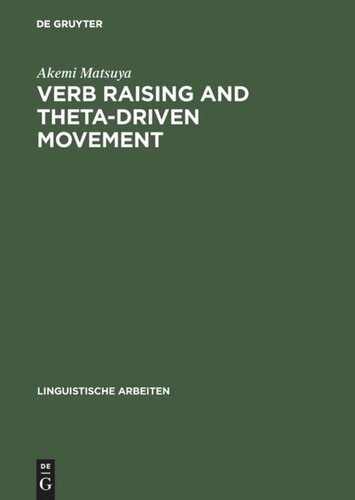

Most ebook files are in PDF format, so you can easily read them using various software such as Foxit Reader or directly on the Google Chrome browser.
Some ebook files are released by publishers in other formats such as .awz, .mobi, .epub, .fb2, etc. You may need to install specific software to read these formats on mobile/PC, such as Calibre.
Please read the tutorial at this link: https://ebookbell.com/faq
We offer FREE conversion to the popular formats you request; however, this may take some time. Therefore, right after payment, please email us, and we will try to provide the service as quickly as possible.
For some exceptional file formats or broken links (if any), please refrain from opening any disputes. Instead, email us first, and we will try to assist within a maximum of 6 hours.
EbookBell Team

5.0
68 reviewsUnder the framework of the Minimalist Program, this book attempts to clarify that greedy movement in Japanese fulfills locality and is driven by checking theta roles as well as Case, categorial features, and so on as formal features. The findings are as follows: the Spec of TP and an uninterpretable [+V] feature make successive cyclic verb raising possible, thus producing a complex verb (Multiple Predicate Formation). MPF and the [+ Spec TP] parameter attribute nonobligatory controlled PRO in the subject position of the adjunct to checking the nominative Case at the Spec of TP within the adjunct. Overt verb raising beyond the nonfinite clause boundary enables the long distance A-movement in the control constructions. The derivational difference among ni direct passives, ni indirect passives, and ni yotte direct passives is due to the three corresponding types of checking theta roles and Case. The impossibility of scrambling ni indirect passives is predicted by the exhaustion of the theta roles. The semantic difference between o-causatives and ni-causatives is caused by dative NP's checking Case and theta roles. No passives of noncoercive causatives are produced because of the exhaustion of theta roles at TP. The passivization in double object constructions are limited by the functions of dative markers in Case and theta role checking.